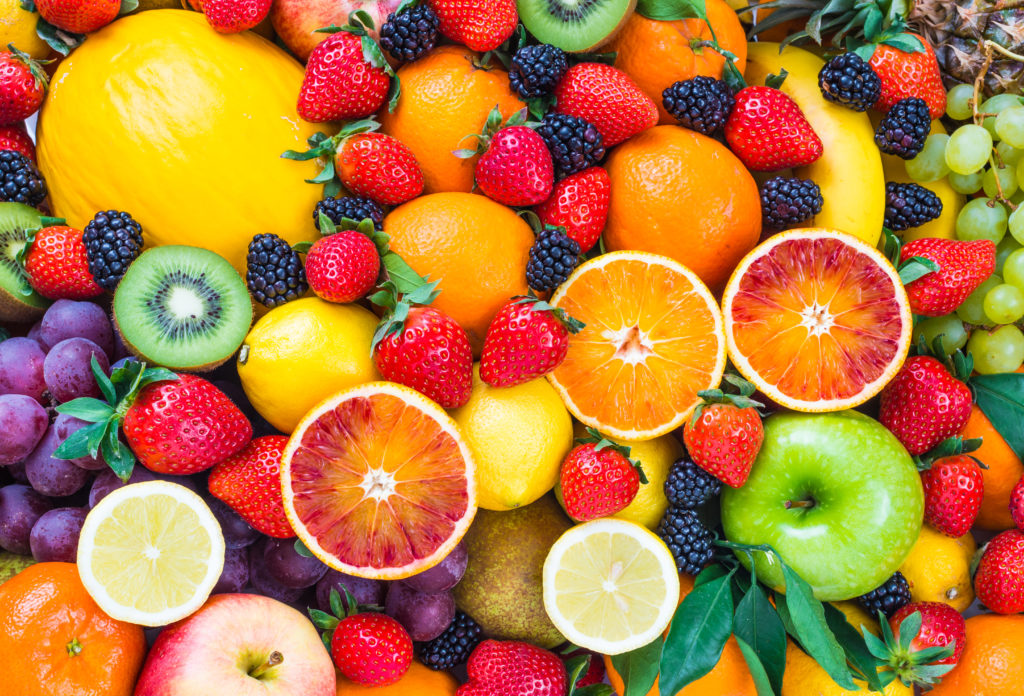February 8, 2023
What Fruits Are Good for Diabetes?
Whether you’ve recently been diagnosed with diabetes or you’ve been managing it for years, you may have questions about your diet. Deciding what to eat each day is critical to managing your health, but knowing how different foods affect your blood sugar can be complicated. You don’t have to cut out all sweet foods, however. Eating fruit is a healthy, diabetes-friendly way to get a sweet treat without blood sugar worries.
Diabetes and Blood Sugar
 A big priority for anyone with diabetes is managing their blood sugar levels. Eating foods with high sugar or carbohydrate content can cause blood sugar to rise. Without an adequate supply of insulin to process the sugar, you may develop symptoms of hyperglycemia. You could notice thirst, fatigue, weakness, and blurred vision. Keeping blood sugar levels steady prevents those spikes and the symptoms that come with them.1
A big priority for anyone with diabetes is managing their blood sugar levels. Eating foods with high sugar or carbohydrate content can cause blood sugar to rise. Without an adequate supply of insulin to process the sugar, you may develop symptoms of hyperglycemia. You could notice thirst, fatigue, weakness, and blurred vision. Keeping blood sugar levels steady prevents those spikes and the symptoms that come with them.1
Concerns about sugar mean that you might steer clear of your favorite fruits. You may have concerns that sweet fruits like watermelon or cherries might cause blood sugar spikes. Experts agree that those fears are unfounded. You can enjoy fruit as long as you keep portions modest and don’t add sugar or other sweet toppings.2
Is Fruit Safe for Diabetics?
Fruit, in modest amounts, is a safe addition to a diabetic eating plan. Fruit tastes sweet, but the sweetness comes from natural, unprocessed sugars. Fruits are also complex carbohydrates that break down slowly after you eat them.
Unlike food with added sugars or high carb counts, most varieties of fruit have a relatively low glycemic index. Eating a modest serving of fruit won’t lead to a rapid increase in blood glucose. You can incorporate fruit into your eating plan as long as your doctor agrees that it is safe for you to do so.3
There are a lot of health benefits to eating fruit, along with fruit’s less sweet cousin, vegetables. Plants are loaded with essential nutrients like vitamins and minerals. Fruits also provide important micronutrients that can reduce inflammation, boost immunity, and lower your risk of health conditions like cancer. They are a good source of dietary fiber, which aids digestion and may help with weight control.
Which Fruits to Eat
When you choose fruit, the easiest option is to buy whole, raw fruit from the produce section. You can also buy frozen, canned, or dried fruits. Check the label to make sure there is no added sugar. Look for canned fruits that are packed in unsweetened juice or water rather than sugary syrups.
- Watermelon: Nothing says summer like a slice of watermelon. You might wonder if watermelon is good for diabetics. The good news is this juicy melon is low in carbs and sugar, so it’s a safe treat for diabetics. It offers plenty of fiber and Vitamins C and A, making it a nutritious treat. (1 cup watermelon: 11.5 carb, 45 cal)
- Oranges: Don’t worry if oranges are good for diabetes; they are. Oranges are a go-to fruit for anyone looking for a quick way to get some immune-boosting vitamin C. They are also a great way to add both fiber and hydration to a meal. (One orange: 17.4 carbs, 69 cal 13 sugar)

- Cantaloupe: Another popular melon, cantaloupe, is good for diabetics who like very sweet fruit. Cantaloupe is an ideal fruit to indulge your sweet tooth without processed sugar. A cup of this sweet orange melon is low in carbs and sugars but provides plenty of nutrition, including calcium and Vitamin C. (1 cup cantaloupe: 13 carbs, 54 cal, 12.6 sugar )
- Cherries: Cherries are delicious and make an enjoyable snack. They provide high levels of antioxidants, and they are also a good source of fiber, meaning cherries are good for diabetics as well as anyone else looking for a healthy treat. They are relatively low on the glycemic index, so you can eat a satisfying amount of them without worrying about high sugar content. (1/2 cup cherries: 12.3 carbs, 48 cal, 19 sugar)
- Grapefruit: Just as oranges are good for diabetics, grapefruit is also good for diabetes. Grapefruit, like oranges, are healthy and pack a big dose of vitamins that boost immune function. Their tater flavor is a sign that they are relatively low in sugar and carbs. They still contain plenty of fiber, and the juicy fruit is great for hydration. (1/2 grapefruit: 9 carbs, 36 cal, 9 sugar)
- Papaya: If you want to try different fruits, papaya is good for diabetics. A cup of papaya offers a sweet, exotic treat. This tropical fruit is loaded with Vitamins A and C, as well as folate and calcium. (1 cup papaya, 15 carbs, 62 cal, 11 sugar)
- Orange Juice: In general, whole fruit is preferable to fruit juices, but a small glass of orange juice can be a refreshing drink. To ensure your orange juice is good for diabetics, choose a brand that doesn’t contain added sugar. If you get the kind with pulp, it offers fiber as well as vitamins and hydration. (4 oz orange juice: 14 carbs, 61 cal, 10 sugar)
- Berries: Like cherries, berries are loaded with healthy antioxidants. They are also low glycemic index foods, so you can eat a nice-sized serving of them without having to worry about a blood sugar spike. Blueberries, raspberries, blackberries, and strawberries are all healthy and delicious. (1 cup mixed berries: 14 carbs, 63 cal, 10 sugar)
Portion Size Matters
With any fruit, the key to making sure it’s safe for diabetics is controlling portion size. A safe portion is usually half a cup to a cup of fruit or one-half of a small piece of whole fruit. Larger portions may contain higher levels of sugar and carbs. That can cause blood sugar spikes.4
If you have diabetes or if you are at risk of developing diabetes, talk to your doctor before making any changes to your diet. They can help you choose healthy foods that won’t negatively affect your blood sugar.
References:
- Mayo Clinic. “Diabetes.”
- Mayo Clinic. “Diabetes diet: Should I avoid sweet fruits?“
- American Diabetes Association. “”
- Diabetes UK. “Myth: I can’t eat fruit if I have diabetes.“
DISCLAIMER
The information featured in this site is general in nature. The site provides health information designed to complement your personal health management. It does not provide medical advice or health services and is not meant to replace professional advice or imply coverage of specific clinical services or products. The inclusion of links to other web sites does not imply any endorsement of the material on such websites.




